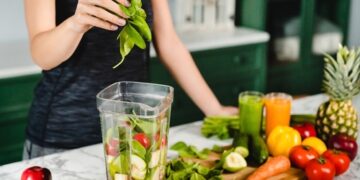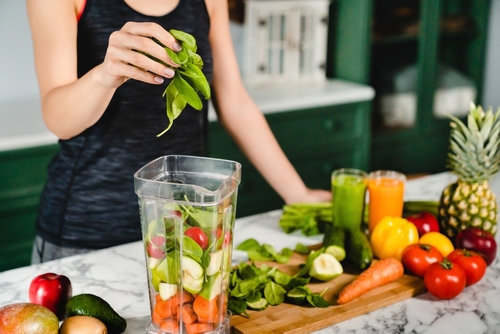The Invisible World Within Us
Inside every person is a hidden world teeming with life—trillions of bacteria, fungi, viruses, and other microorganisms living primarily in the digestive tract. This ecosystem is called the gut microbiome, and it plays an essential role in nearly every aspect of health, from how food is digested and absorbed to how the immune system responds to threats.
Far from being harmful, most of these microbes are not only harmless—they’re helpful. They assist in breaking down complex carbohydrates, synthesizing certain vitamins (like B12 and K), regulating inflammation, and even producing mood-related neurotransmitters like serotonin. The key is balance. When beneficial microbes thrive and keep less-helpful strains in check, the entire body tends to function more smoothly. But when that balance is disrupted—due to poor diet, antibiotics, stress, or illness—digestive discomfort and other health issues can follow.
Ad Banner #1
— Placeholder for the first advertisement —
What Exactly Are Probiotics and Prebiotics?
You’ve probably heard these words used in commercials, food packaging, or health articles—but what do they really mean?
Probiotics: The Good Guys You Can Add In
Probiotics are live microorganisms—mostly bacteria, but sometimes yeasts—that can be consumed through certain foods or supplements. When taken in adequate amounts, they may help replenish or maintain the population of beneficial microbes in the gut.
Common sources include:
-
Yogurt (especially if labeled “contains live and active cultures”)
-
Kefir, a tangy fermented milk drink rich in varied bacterial strains
-
Kimchi and sauerkraut, both fermented cabbage-based foods
-
Kombucha, a fizzy fermented tea
-
Miso and tempeh, traditional fermented soy products
Different probiotic strains offer different benefits. For example, Lactobacillus rhamnosus may help reduce antibiotic-related diarrhea, while Bifidobacterium longum may assist with bowel regularity and immune response. It’s not about taking as many as possible, but choosing the ones that suit your body and lifestyle.
Prebiotics: The Food Your Good Bacteria Love
Prebiotics are not bacteria themselves—they’re dietary fibers and plant compounds that your body can’t digest but your beneficial gut microbes can. Think of prebiotics as fertilizer for your internal garden. When these fibers reach the colon, gut bacteria ferment them, producing short-chain fatty acids (SCFAs) that help lower inflammation, protect the gut lining, and regulate blood sugar.
Naturally prebiotic-rich foods include:
-
Garlic
-
Onions
-
Leeks
-
Asparagus
-
Artichokes
-
Bananas (especially slightly green ones)
-
Chicory root
-
Whole grains like oats and barley
Eating a variety of these plant-based foods helps feed different strains of bacteria, promoting diversity—and diversity is a hallmark of a healthy microbiome.
Why Gut Health Matters Beyond Digestion
While gut bacteria are essential for digestion, their influence extends far beyond the stomach. The gut-brain axis—a communication network between the gut and the brain—means your microbial balance can affect how you feel emotionally. That’s why stress can disrupt digestion and, conversely, why an imbalanced gut can contribute to mood swings, anxiety, or sluggishness.
Additionally, about 70% of the body’s immune system resides in the gut. A strong microbiome can help regulate immune responses, reduce unnecessary inflammation, and train the immune system to recognize harmful invaders without overreacting.
Emerging research is also looking into connections between the microbiome and:
-
Skin health (e.g., eczema, acne)
-
Metabolism and weight balance
-
Blood sugar regulation
-
Autoimmune diseases
While many of these relationships are still being studied, the common thread is clear: the state of your gut affects much more than just what happens after a meal.
Ad Banner #2
— Placeholder for the second advertisement —
Gentle Steps Toward a Healthier Microbiome
The good news is that the microbiome responds well to gradual, consistent changes. Here’s how to begin:
-
Start with Food First
Before reaching for a supplement, begin by incorporating whole, fermented foods and fiber-rich vegetables. Have a small serving of yogurt or sauerkraut with lunch, or try adding sautéed leeks or garlic to dinner. -
Aim for Variety
Just as no single plant can support a diverse ecosystem, no single food can nourish your whole microbiome. Rotate your fruits, vegetables, legumes, grains, and fermented items regularly. -
Stay Hydrated
Water helps the body digest fiber and move waste through the intestines, which supports both microbial balance and overall digestive comfort. -
Limit Processed Foods and Excess Sugar
Diets high in refined carbs and added sugars may reduce microbial diversity and favor the growth of harmful bacteria. -
Introduce Changes Slowly
Suddenly increasing fiber or fermented foods can cause temporary bloating or gas. Start with small amounts and build up gradually. -
Mind Your Stress
Chronic stress can disrupt gut bacteria and slow digestion. Practices like walking, meditation, or simply getting enough rest can help restore balance over time.
When to Seek Support
While minor symptoms like gas or irregularity can often improve with simple diet changes, persistent issues—such as chronic bloating, discomfort, or food sensitivities—may require a deeper look. In these cases, working with a nutritionist or healthcare provider can help identify the underlying cause and tailor an approach that respects your individual biology.
Wrapping It All Together
Understanding the microbiome is like getting to know a quiet but powerful team working behind the scenes. These microbes don’t just process your meals—they help shape your health in subtle and meaningful ways. By nurturing this inner ecosystem with real food, thoughtful habits, and occasional fermented treats, you support a system that, in turn, supports you.
The path to a healthier gut doesn’t require extreme diets or expensive products. It begins with small, intentional steps and a willingness to listen to how your body responds. With time and consistency, your microbiome can become a resilient ally in both digestion and overall vitality.
























